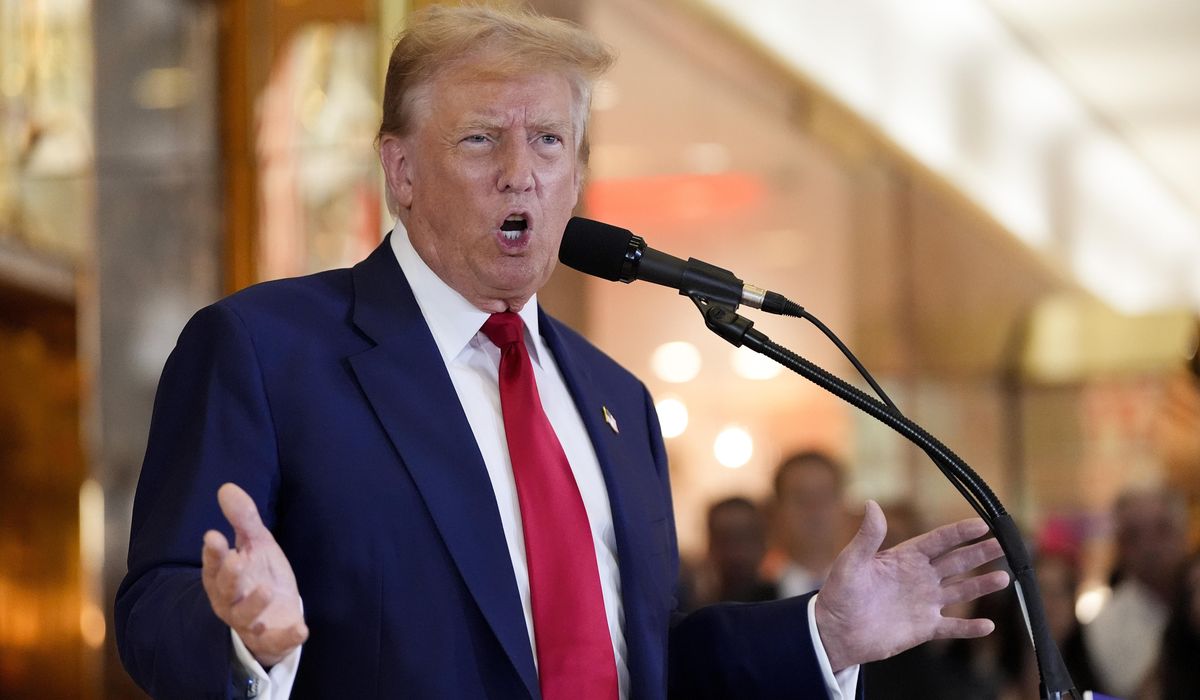


The Manhattan District Attorney’s Office said Wednesday it would oppose former President Donald Trump’s request to lift a gag order that prevented him from commenting on jurors, witnesses and court staff during his hush money trial.
Assistant District Attorney Matthew Colangelo said the gag order was designed to protect the integrity of the entire proceedings, not just the trial itself.
“These interests have not abated, and the court has an obligation to protect the integrity of these proceedings and the fair administration of justice at least through the sentencing hearing and the resolution of any post-trial motions,” Mr. Colangelo said in a letter addressed to state Supreme Court Judge Juan Merchan.
Mr. Colangelo said he would elaborate on the basis for the request in a reply to formal motions from Mr. Trump’s side.
Mr. Trump’s lawyer, Todd Blanche, told Judge Merchan this week there is no basis to keep the gag order in place.
“Now that the trial is concluded, the concerns articulated by the government and the court do not justify continued restrictions on the First Amendment rights of President Trump — who remains the leading candidate in the 2024 presidential election — and the American people,” Mr. Blanche wrote.
Mr. Trump criticized the gag order repeatedly during his trial, arguing it was an attempt to muzzle him while he campaigned against President Biden.
Judge Merchan imposed the gag order because he was concerned that jurors or witnesses would be intimidated and after the former president attacked the judge’s daughter over her Democratic consultancy work. The judge fined Mr. Trump thousands of dollars for violations of the order and threatened to throw him in jail for additional offenses.
It’s unclear how or when Judge Merchan will rule on Mr. Blanche’s request.
Mr. Colangelo said the matter should be handled with other post-trial motions, with Mr. Trump’s side submitting papers on June 13 and the prosecution responding by June 27.
A Manhattan jury on Thursday found Mr. Trump guilty on all 34 felony counts of falsifying business records. Prosecutors alleged at trial that Mr. Trump, using his lawyer Michael Cohen, criminally concealed a hush payment to porn star Stormy Daniels to avoid bad press near the 2016 election.
Mr. Trump faces up to four years in prison at his July 11 sentencing, though legal experts say he might not do any time because of his status as a first-time, nonviolent offender.
Judge Merchan might be wary of sending Mr. Trump to prison, given the former president’s status as the presumptive GOP nominee and the need to keep Secret Service protection, even behind bars.
• Tom Howell Jr. can be reached at thowell@washingtontimes.com.
